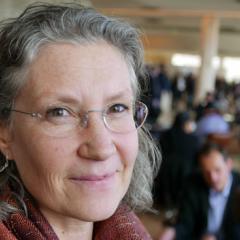Stabinsky quoted by Al Jazeera in article on climate justice needs in Africa
Stabinsky said: "African governments see money; and the picture that the World Bank is painting is a very worthy one. The more land you have, the more soil carbon you can sell. And there is so much land tenure based on customary tenure in Africa; lots of people don't have private title of their land.
"So if you really can create the need for a verifiable commodity [in carbon], there may be a reason for governments to go in and claim that land. And the government can do it if they want," she said.
Soil carbon capture schemes also require farmers to sign deals allowing developers to lease their lands for many years, even decades. As part of these agreements, farmers would also be confined to using specific agricultural practices on their lands.
These so-called agro-ecological or "climate smart" farming practices – which include things like non-tilling of the soil, to ensure minimal disturbance of the captured carbon – are central to achieving the "triple win" solutions of climate change adaptation, mitigation and food security, the World Bank said.
However, Stabinsky said: "If you are a farmer dealing with the varies of climate change, you may have to do something different on the soil the next year. The flexibility needed by a small farmer living on the edge may not be the same as what the World Bank needs to be done."
